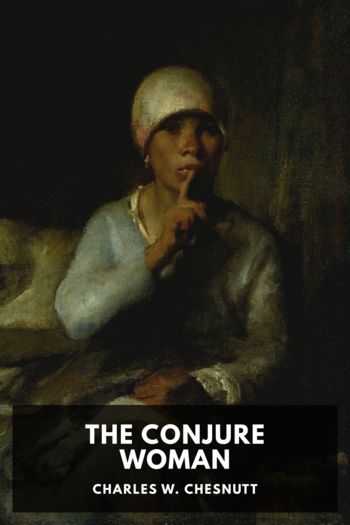Commentaries on the Gallic War, Julius Caesar [the chimp paradox TXT] 📗

- Author: Julius Caesar
Book online «Commentaries on the Gallic War, Julius Caesar [the chimp paradox TXT] 📗». Author Julius Caesar
Caesar, having again marched to harass the enemy, after collecting a large number of auxiliaries from the neighbouring states, despatches them in all directions. All the villages and all the buildings, which each beheld, were on fire: spoil was being driven off from all parts; the corn not only was being consumed by so great numbers of cattle and men, but also had fallen to the earth, owing to the time of the year and the storms; so that if any had concealed themselves for the present, still, it appeared likely that they must perish through want of all things, when the army should be drawn off. And frequently it came to that point, as so large a body of cavalry had been sent abroad in all directions, that the prisoners declared Ambiorix had just then been seen by them in flight, and had not even passed out of sight, so that the hope of overtaking him being raised, and unbounded exertions having been resorted to, those who thought they should acquire the highest favour with Caesar, nearly overcame nature by their ardour, and continually a little only seemed wanting to complete success; but he rescued himself by means of lurking-places and forests, and, concealed by the night, made for other districts and quarters, with no greater guard than that of four horsemen, to whom alone he ventured to confide his life.
Having devastated the country in such a manner, Caesar leads back his army with the loss of two cohorts to Durocortorum of the Remi, and, having summoned a council of Gaul to assemble at that place, he resolved to hold an investigation respecting the conspiracy of the Senones and Carnutes, and having pronounced a most severe sentence upon Acco, who had been the contriver of that plot, he punished him after the custom of our ancestors. Some fearing a trial, fled; when he had forbidden these fire and water, he stationed in winter quarters two legions at the frontiers of the Treviri, two among the Lingones, the remaining six at Agendicum, in the territories of the Senones; and, having provided corn for the army, he set out for Italy, as he had determined, to hold the assizes.
Book VIIGaul being tranquil, Caesar, as he had determined, sets out for Italy to hold the provincial assizes. There he receives intelligence of the death of Clodius; and, being informed of the decree of the senate to the effect that all the youth of Italy should take the military oath, he determined to hold a levy throughout the entire province. Report of these events is rapidly borne into Transalpine Gaul. The Gauls themselves add to the report, and invent what the case seemed to require, namely that Caesar was detained by commotions in the city, and could not, amidst so violent dissensions, come to his army. Animated by this opportunity, they who already, previously to this occurrence, were indignant that they were reduced beneath the dominion of Rome, begin to organize their plans for war more openly and daringly. The leading men of Gaul, having convened councils among themselves in the woods, and retired places, complain of the death of Acco: they point out that this fate may fall in turn on themselves: they bewail the unhappy fate of Gaul; and by every sort of promises and rewards, they earnestly solicit some to begin the war, and assert the freedom of Gaul at the hazard of their lives. They say that special care should be paid to this, that Caesar should be cut off from his army, before their secret plans should be divulged. That this was easy, because neither would the legions, in the absence of their general, dare to leave their winter quarters, nor could the general reach his army without a guard: finally, that it was better to be slain in battle than not to recover their ancient glory in war, and that freedom which they had received from their forefathers.
Whilst these things are in agitation, the Carnutes declare “that they would decline no danger for the sake of the general safety,” and promise that they would be the first of all to begin the war; and since they cannot at present take precautions, by giving and receiving hostages, that the affair shall not be divulged they require that a solemn assurance be given them by oath and plighted honour, their military standards being brought together (in which manner their most sacred obligations are made binding), that they should not be deserted by the rest of the Gauls on commencing the war.
When the appointed day came, the Carnutes, under the command of Cotuatus and Conetodunus, desperate men, meet together at Genabum, and slay the Roman citizens who had settled there for the purpose of trading (among the rest, Caius Fusius Cita, a distinguished Roman knight, who by Caesar’s orders had presided over the provision department), and plunder their property. The report is quickly spread among all the states of Gaul; for, whenever a more important and remarkable event takes place, they transmit the intelligence through their lands and districts by a shout; the others take it up in succession, and pass it to their neighbours, as happened on this occasion; for the things which were done at Genabum at sunrise were heard in the territories of the Arverni before the end of the first watch, which is an extent of more than a hundred and sixty miles.
There in like manner, Vercingetorix the son of Celtillus the Arvernian, a young man of the highest power (whose father had held the supremacy of





Comments (0)